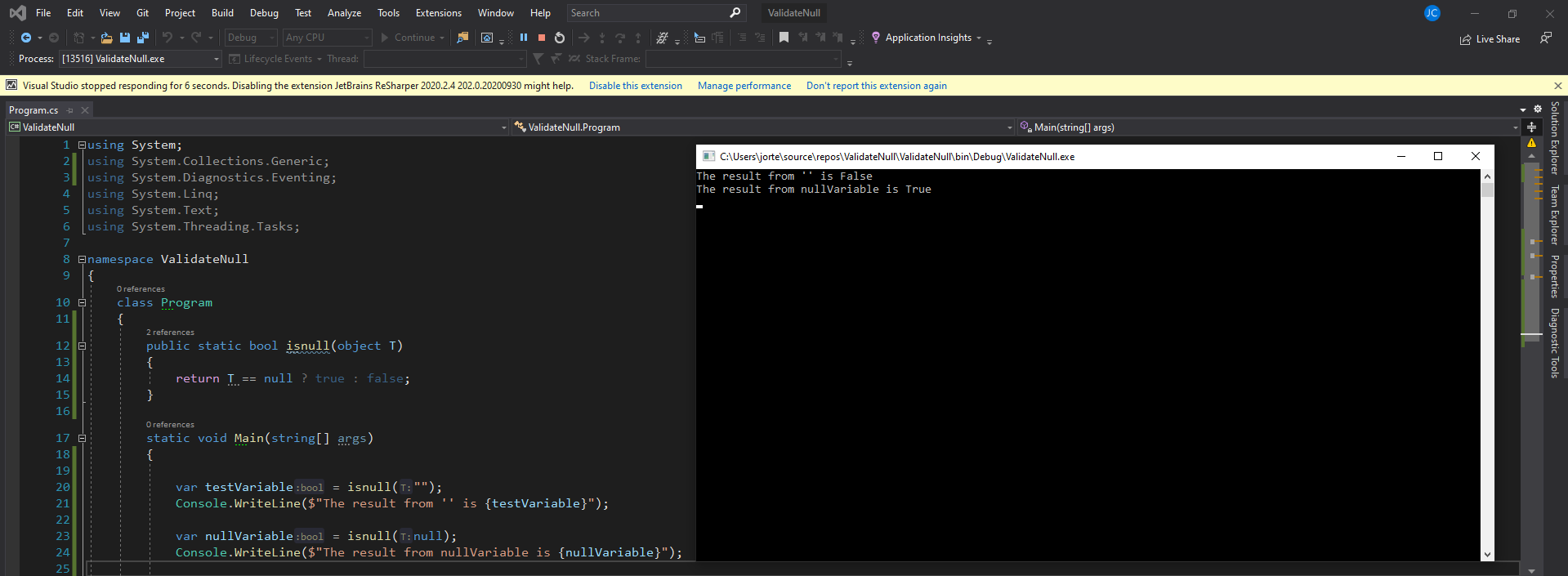I would like to prevent further processing on an object if it is null.
In the following code I check if the object is null by either:
if (!data.Equals(null))
and
if (data != null)
However, I receive a NullReferenceException at dataList.Add(data). If the object was null, it should never have even entered the if-statement!
Thus, I'm asking if this is proper way of checking if an object is null:
public List<Object> dataList;
public bool AddData(ref Object data)
bool success = false;
try
{
// I've also used "if (data != null)" which hasn't worked either
if (!data.Equals(null))
{
//NullReferenceException occurs here ...
dataList.Add(data);
success = doOtherStuff(data);
}
}
catch (Exception e)
{
throw new Exception(e.ToString());
}
return success;
}
If this is the proper way of checking if the object is null, what am I doing wrong (how can I prevent further processing on the object to avoid the NullReferenceException)?


throw e;versusthrow new Exception(e.ToString());– Gyrostaticsdataobject initialized before checking for null? Or is it coming from a database? – Selfforgetful!= nullin your null checks..Equalswill always throw an exception if the object is null. – Vlaminckthrow e;is not much better.throw;, on the other hand... – Hebeticthrow einstead of what I have? (Thanks!) – Garofaloe.ToString()will produce a string that includes not only the error message, but also those of allInnerExceptionsand the stack trace. So that's kind of a very fat-heavy exception message. If you (rightly!) want to preserve this information, and keep where it belongs, use simplythrow;. – Hebeticthrow;– Callicratesis null, so for your first check you could writeif (data is null) return false;to reduce nesting and make use of the (imo) cleaner syntax. – Motmot